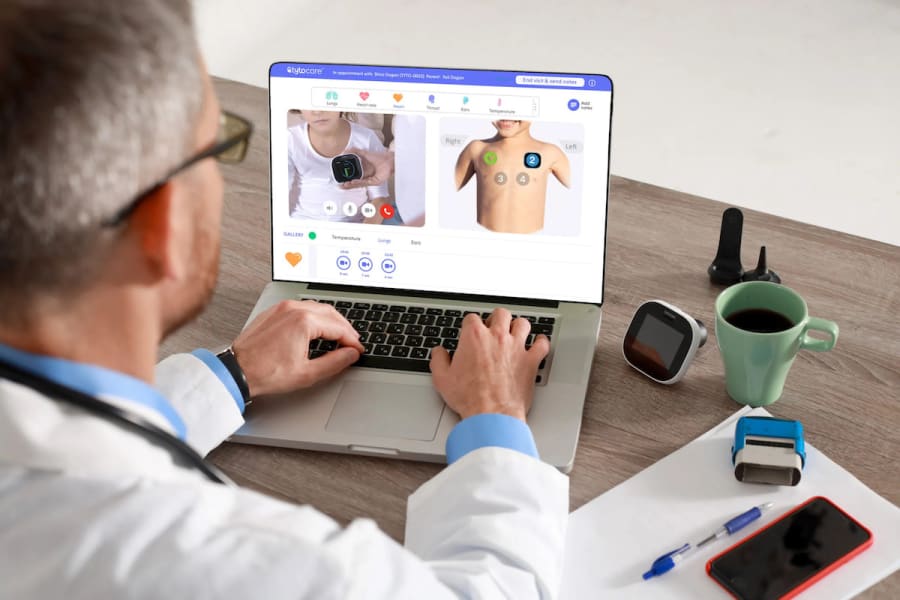Israeli company TytoCare provides comprehensive remote assessments to ease burdens on hospitals

Digital home devices have the potential to revolutionize the way healthcare is administered, according to a recent joint Israeli/American study project.
The collaborative study conducted by Clalit Research Institute, the University of Haifa, Tel Aviv University and Stanford University found that telemedicine significantly reduces the burden on doctors, hospitals and clinics, while also providing immediate assistance to patients.
Results of the study were published in the Journal of Health Economics, in an article entitled: “Adoption and Utilization of Device-Assisted Telemedicine.”
By using home-based equipment like the Tyto device, developed by the Clalit Institute for remote medical testing and diagnosis, patients can avoid crowded emergency rooms, while still receiving quality care.
The device, produced by Israeli company TytoCare, provides comprehensive remote assessments, including vitals for the heart and lungs, evaluations of skin conditions, temperature checks and the condition of the heart and ears.
Dr. Yehezkel Waisman, an expert in pediatric medicine at Clalit, said the “leading significance of this research is the alleviation of pressure on the healthcare system and on hospitals in a way that allows for quicker medical responses in cases that do require physical examination.”
“The importance of this study is understanding the potential of new technologies to improve and streamline medical services, assist in diagnostic and treatment processes, and expand the use of telemedicine without increasing costs,” Waisman added.
The analysis for the study involved 100,000 digital visits with 28,000 users between 2019 and 2021. The results were compared to a similar set of patients who did not use the remote device.
Dan Zeltzer, a Tel Aviv University economist, said, “The increase is primarily in digital visits, but among Tyto service users, we observed a significant decrease in visits to urgent-care centers, emergency rooms, and hospitals.”
“A parent who would have, in the past, rushed their child to the emergency room or urgent care center in the middle of the night due to fever or earaches now gets the desired response and instructions for further care without needing to physically see a physician,” noted Joseph Rashba of the Clalit Research Institute.
Vice President of IT & Digital Division at Clalit Health Services Liora Shechter, proposed that remote medical services such as the Tyto device could genuinely revolutionize medical home healthcare.
“This research illustrates how innovation, including our smart tools for remote medicine, adds value in improving treatment quality,” added Ran Balicer, chief innovation officer for Clalit Health Services.

The All Israel News Staff is a team of journalists in Israel.














